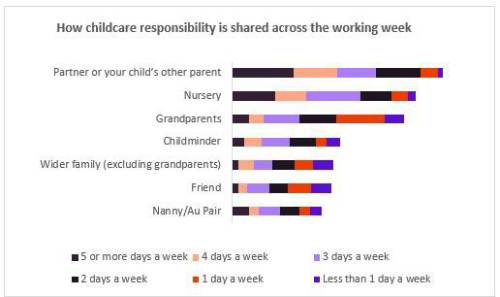Over a third (34%) of this group say the cost of childcare has stopped them from saving for their future
71% of parents in England aim to increase their working hours or return to work with the additional free childcare hours from April, but some report difficulties accessing formal childcare
Phoenix Group has found a quarter (25%) of adults with a child under five have reduced their working hours due to childcare costs, and a further 4% have left work entirely. This is resulting in longer term consequences for parents’ retirement saving, as pension contributions decrease or are paused during time away from work.
The research was carried out ahead of the first phase of the government’s childcare support package coming into effect. From April 2024, working parents of two-year-olds will be eligible for 15 hours of free childcare support per week, over 38 weeks of the year.
Phoenix Insights, Phoenix Group’s longevity think tank, previously found that caring responsibilities often fall disproportionately on women, and limited access to affordable childcare means many are left with no choice but to work part-time. This was reflected in the research, which found that women with a child under five were significantly more likely than men to reduce their working hours because of childcare responsibilities (36% compared to 15%).
Increasing working hours with better childcare support
When asked about the extension of childcare support in England, 71% of working parents said they would increase their working hours if they could access the free childcare support. Of those parents currently out of work, 64% said they hoped to return if they could access the additional support.
Boosting income to cover living costs was the primary reason parents gave for increasing their working hours, followed by the ability to save and the desire to focus on career progression.
However, while parents are hopeful to increase their working hours, some report challenges with the availability of childcare which limits their ability to do this. One in six adults with a child under five said they have found it difficult accessing formal childcare, for example through a nursery or childminder.
Parents face saving sacrifice
The choice between work and childcare isn’t just around the trade-off between salary and childcare costs. Time out of work or reducing hours could also have consequences for long-term finances. Over a third (34%) of adults in the survey said the cost of childcare has stopped them from saving for their future.
Parents who reduce their working hours will earn less and contribute less into a workplace pension unless they increase their contribution level. There is also a risk that parents are excluded from workplace pension saving entirely if their salary is under the auto-enrolment earnings threshold, currently £10,000 – Phoenix Insights has found that women are three times more likely than men to be excluded from pensions auto enrolment for this reason.
Patrick Thomson, head of research and policy at Phoenix Group’s longevity think tank Phoenix Insights, and co-chair of the ‘Families at Phoenix’ colleague network, comments: “Childcare costs can be crippling, and parents often face the dilemma of reducing working hours or dropping out of work entirely as they weigh up the benefits of working compared to paying childcare fees.
“Alongside the immediate impact on take home pay, it is also important to consider how this can affect future finances. Most people saving in a workplace pension pay a proportion of their salary to their retirement savings alongside an employer contribution, so any decrease in earnings from working less can lead to reduced pension contributions.
“Expanding the free childcare hours in England will offer some financial relief for working parents, and also support them to remain in work and continue to save if they are able. But it is crucial this goes hand-in-hand with measures designed to boost the availability of formal childcare. There is also an important role for employers to offer more flexible working arrangements for those with childcare responsibilities, particularly for those who feel that leaving work is their only option.
“Parents understandably want to provide for their children today, but that shouldn't have to be at the cost of their own financial wellbeing in the future.”
How childcare is shared across the working week
The research also looked at who adults with a child under five rely on for childcare during the working week. The child’s other parent/partner was the most relied upon, but this was closely followed by nurseries and grandparents.

Phoenix Group research, March 2024: Adults with a child under 5, base: 500
|

